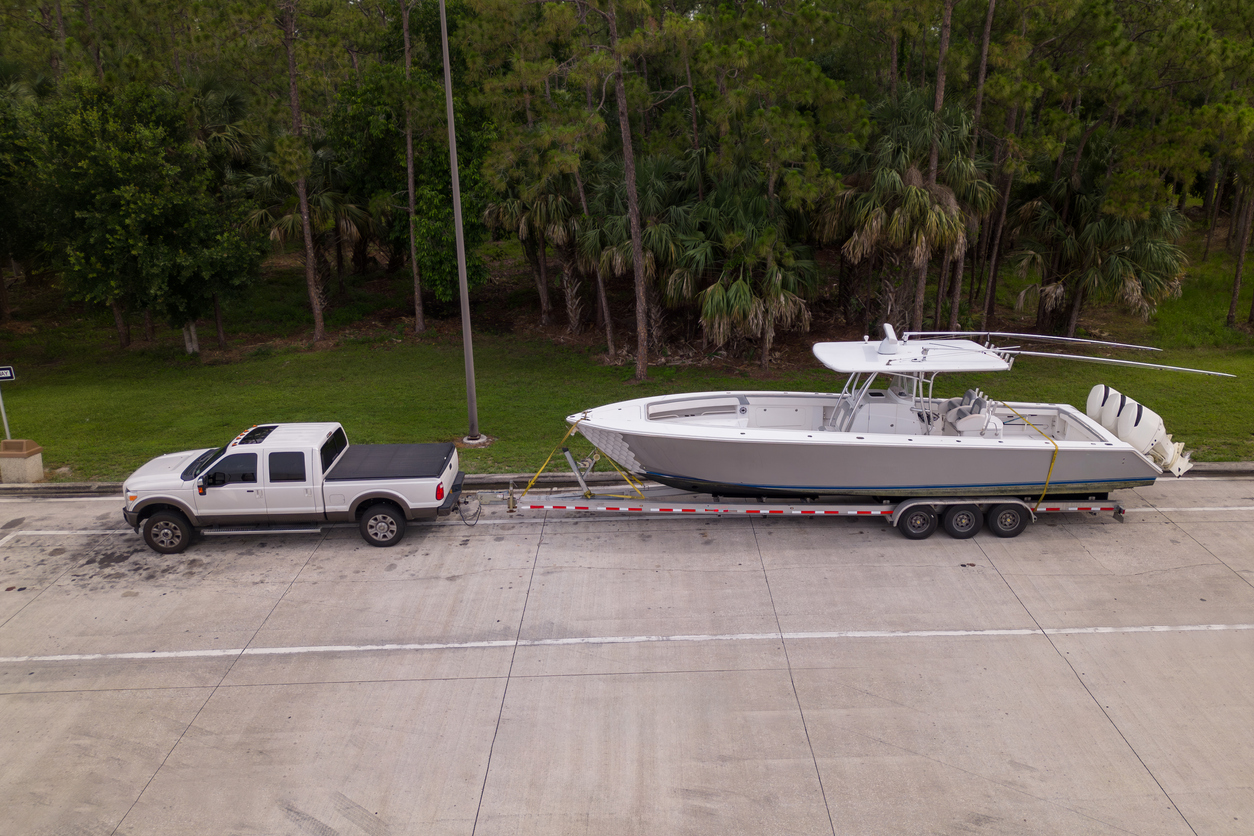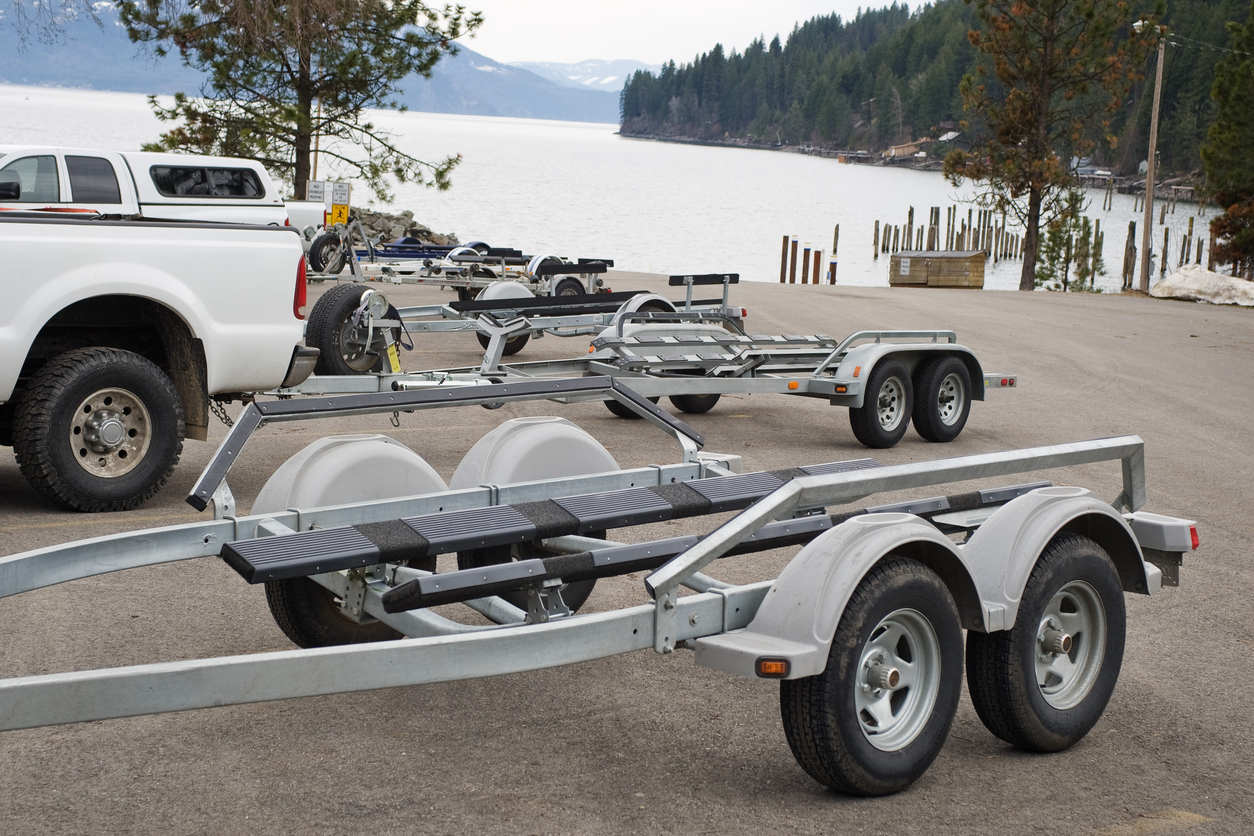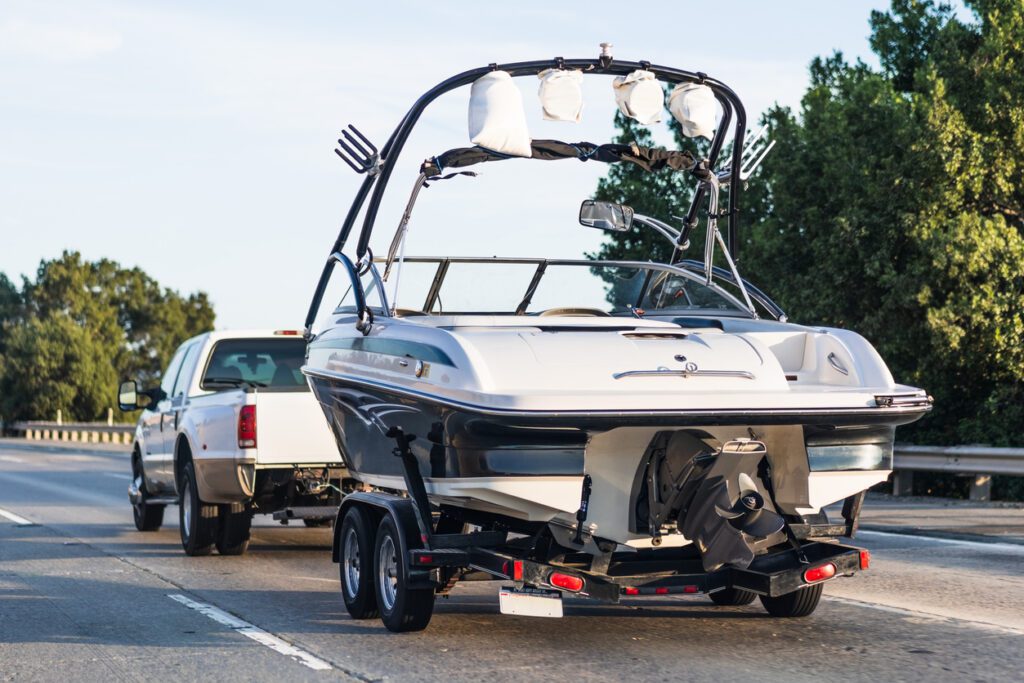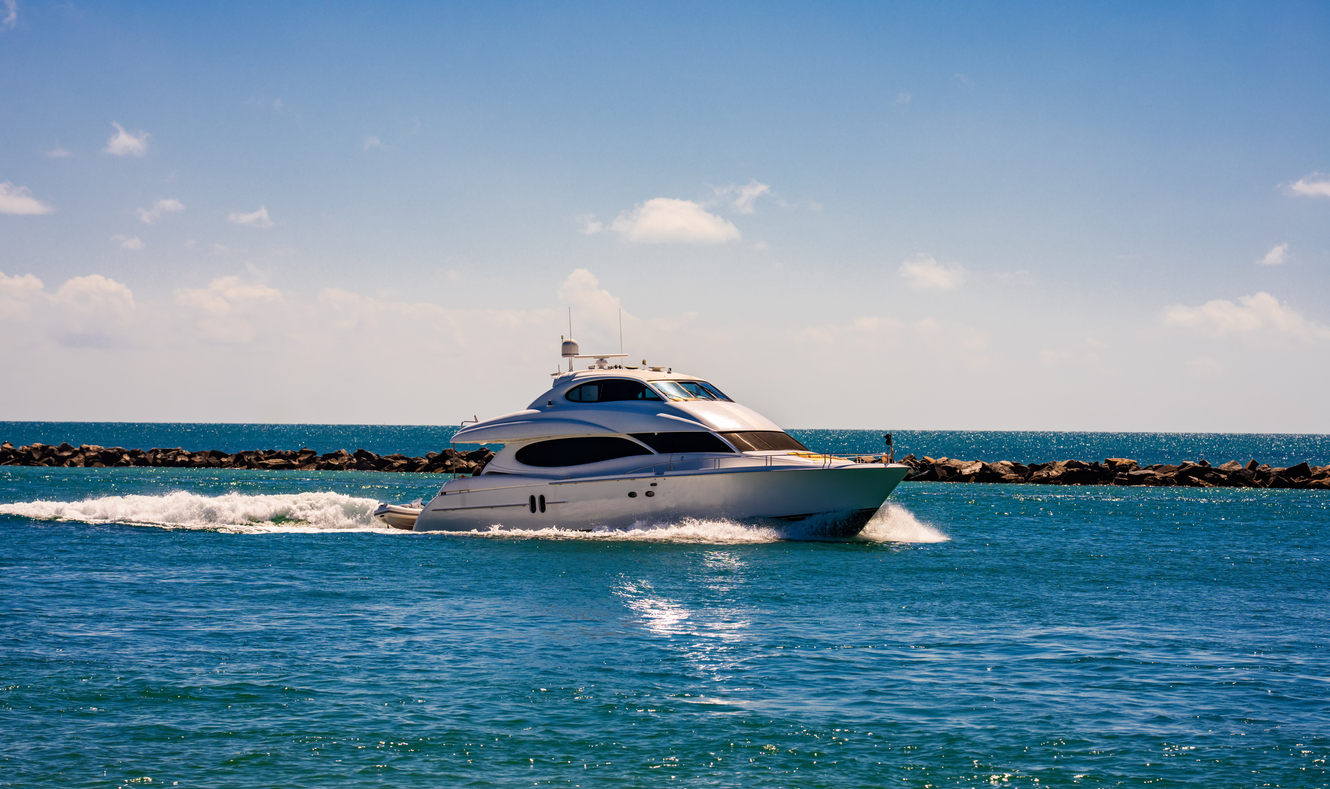With summer in full swing, you’re likely looking forward to spending as much time out on the water as you can in the coming weeks. Of course, before you set sail, it is important that you properly service your boat to ensure maximum performance and safety. Yet, one aspect of boat maintenance that often gets overlooked is trailer maintenance. However, taking care of your boat trailer is essential in order to ensure that you have a reliable way to get your boat to and from the water all summer long. The last thing you want is to be all packed and ready for a day on the water only to discover something is wrong with your boat trailer. To help prevent this from happening, keep reading as we take a look at our top boat trailer maintenance tips.
Check Tires and Wheels for Boat Trailer Maintenance
When you take your boat trailer out of storage for the summer, the first thing that you should do is inspect your tires and wheels. Problems with your trailer’s tires and wheels can cause you to become stranded on the side of the road. They can also pose a safety hazard. You should then take some time to check your tires’ air pressure, check for failed wheel bearings, and make sure the lug nuts are tight. You should also inspect the tires for signs of wear. If your tires have excessive cracking, low tread, or are more than five years old, you must have them replaced before you consider taking your boat anywhere. Once you ensure that your tires are ready for the summer, make sure that you continue checking their air pressure at least once a month.

Test Your Brakes
The next thing that you’ll want to do before you hit the road is to check your trailer’s brakes. Just like your car, it’s essential that you properly maintain the brakes on your boat trailer to ensure your safety on the road. This includes having your brake pads or shoes inspected every season, and replacing them when necessary to ensure safe performance. Additionally, you should also keep your brakes free of salt or dirt by rinsing them after every boating trip to prevent degradation. You should also make sure that you check your trailer’s brake fluid levels at least a couple of times a season to ensure you’re not running too low, as the fluid level will go down as your brake pads wear out. Finally, before each trip, test your trailer’s brakes before you get on the road to ensure that they engage smoothly and provide adequate stopping power.
Test Brake Lights
When testing your brakes before your trip, you should also take a moment to test your boat trailer’s brake lights and turn signals as well to ensure they’re working properly. This will help you catch a burnt-out bulb. This allows you to replace it before you get a ticket, or worse, cause an accident. After each trip, make sure that you also clean your trailer’s brake light connections by cleaning them with a towel and spraying them down with a corrosion blocker. Trailer light connections are often missed during boat trailer maintenance, but it is essential to keep them clean to prevent corrosion.
Rinse and Dry Your Boat Trailer After Use
One of the most important things that you can do for boat trailer maintenance is to give your trailer a good rinse after each use. Rinsing your boat trailer after use can go a long way in preventing corrosion and keeping your trailer looking pristine season after season by removing dirt and grime. It is particularly important that you rinse your boat after each use in saltwater environments. Lingering salt can wreak havoc on your trailer over time. After you rinse off the trailer, make sure that you dry it thoroughly to prevent any water spots from forming.
Grease Wheel Bearings Regularly for Boat Trailer Maintenance
A common cause of boat trailer trouble is failed wheel bearings. This makes it essential that you grease your wheel bearings regularly so that you can get to and from the water without incident. You should then make it a habit to grease your wheel bearings at least every couple of months. Though it may need to be done more frequently if you regularly use your boat in saltwater environments such as the ocean.

Additional Tips
- Inspect for Rust and Damage for boat trailer maintenance: When servicing your boat trailer, it is also important that you visually inspect the trailer for signs of damage, such as rust and corrosion. Detecting and fixing these problems early can help save you money and extend the life of your trailer.
- Carry a Spare Tire: No matter how well you take care of your boat trailer, accidents happen, and at some point, you may find yourself with a flat tire. To ensure you don’t become stranded on the side of the road, you must carry a spare tire. Make sure that you inspect your spare tire regularly and replace it if it shows signs of damage or is over 5 years old.
- Store Your Trailer Properly: To extend the life of your boat trailer, make sure that you store it in a dry, covered area to help protect it from the elements and prevent rust and corrosion.
Looking for a Place to Store Your Boat? Consider the Marinas by Trident Marine Group
Your boat trailer is an essential tool that ensures you have a reliable way to get to and from the marina all summer long. This makes proper boat trailer maintenance essential. Yet, hitching up your trailer and loading/unloading your boat every time you want to spend a day out on the water can be a pain. If you want a simpler solution, consider docking your boat for the summer at one of the marinas by Trident Marine Group. Not only will choosing to store your boat in one of our slips make enjoying your summer a breeze, but you’ll also benefit from our best-in-class amenities such as 24/7 security, an on-call mechanic, and concierge services. Feel free to contact us to learn more about our facilities and the benefits of storing your boat at one of our marinas.


